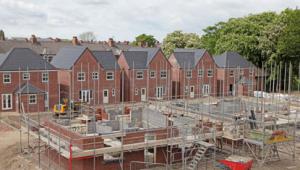The review takes forward a commitment made in the December Autumn Statement. Setting out details in Cambridge today, Alexander said the report, which will be published at next year’s Budget, would also consider how businesses use property and how rates can be modernised to better reflects changes in value.
Among the key points in the review is consideration of the sustainability of the current system of rates, which is based on local property values and is collected by local authorities.
From April 2013, councils have retained half of the local growth in business rates in an attempt to incentivise town halls to back new developments, and the review has asked for views on how this can be further improved. The impact of increased local retention on local authority finances will be considered, with Local Government Secretary Eric Pickles having previously indicated he would like local authorities to retain as much as 90% of rates in future.
In addition, the review has sought views on how to reform business rates so they more closely reflect wider economic conditions. Property values are meant to be revised every five years, but a planned revaluation has been delayed from 2015 to 2017.
Alexander announced that the review would look at whether government support for SMEs could be better targeted, given that the size of a company may not be reflected in the rateable value of a property it uses.
‘Our system of business rates was created nearly 30 years ago,’ Alexander stated.
‘Since that time, the worlds of commerce and industry have changed beyond recognition. I’ve been impressed by the representations made by the business community and I know that business rates are a considerable cost,’ he said.
‘The government has taken measures to help businesses by capping rates and introducing reliefs for smaller businesses. But now the time has come for a radical review of this important tax. We want to ensure the business rates system is fair, efficient and effective.’












